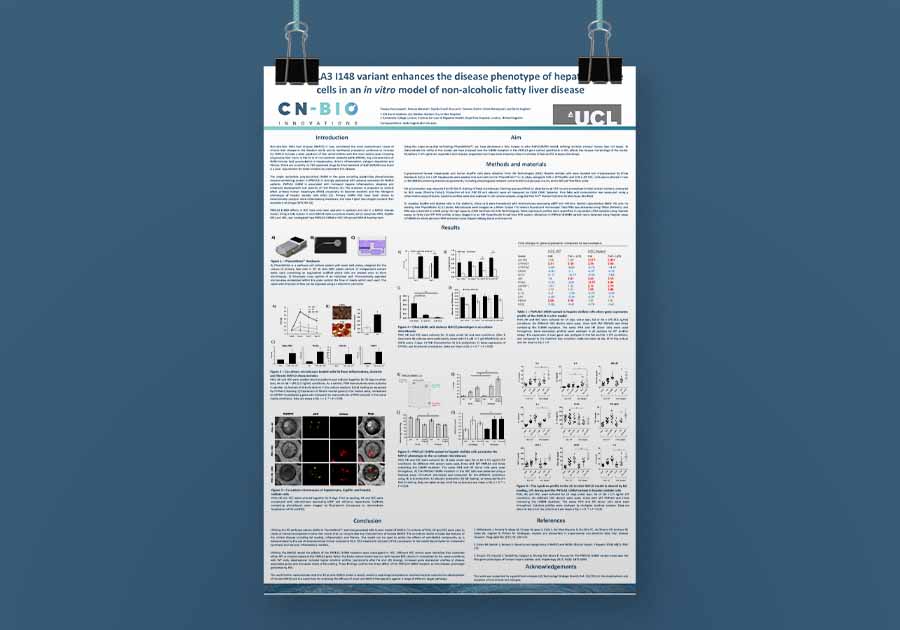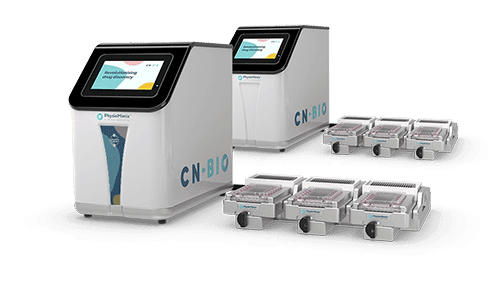Resource > Posters >
The PNPLA3 I148 variant enhances the disease phenotype of hepatic stellate cells in an in vitro model of non-alcoholic fatty liver disease
American Association for the Study of Liver Diseases (AASLD)
Filed under: Disease modeling and NAFLD/NASH

Kostrzewski et al
Non-Alcoholic Fatty Liver Disease (NAFLD) is now considered the most predominant cause of chronic liver disease in the Western world and its worldwide prevalence continues to increase. NAFLD includes a wide spectrum of liver abnormalities with the most severe cases involving progressive liver injury in the form of Non-Alcoholic Steatohepatitis (NASH). Key characteristics of NASH include lipid accumulation in hepatocytes, chronic inflammation, collagen deposition, and fibrosis. There are currently no FDA-approved drugs for the treatment of NAFLD/NASH and there is a clear requirement for better models to understand this disease.
The single nucleotide polymorphism I148M in the gene encoding patatin-like phospholipase domain-containing protein 3 (PNPLA3) is strongly associated with adverse outcomes for NAFLD patients. PNPLA3 I148M is associated with increased hepatic inflammation, steatosis, and enhanced development and severity of liver fibrosis. The mutation is proposed to directly affect primary human hepatocyte (PHH) propensity to become steatotic and the fibrogenic phenotype of hepatic stellate cells (HSC). Primary I148M HSC have been shown to demonstrably produce more inflammatory mediators, and have higher lipid droplet content than equivalent wild-type (WT) HSC. PNPLA3 I148M effects in HSC have only been explored in isolation and not in a NAFLD disease model. Using a fully human in vitro NAFLD triple co-culture model, which comprises PHH, Kupffer (HK), and HSC, we investigated how PNPLA3 I148M in HSC influenced NAFLD development.

